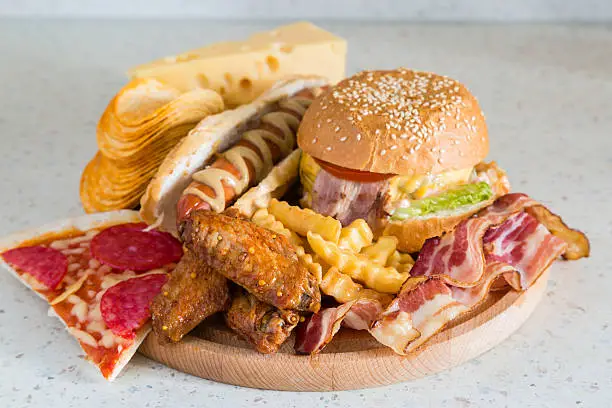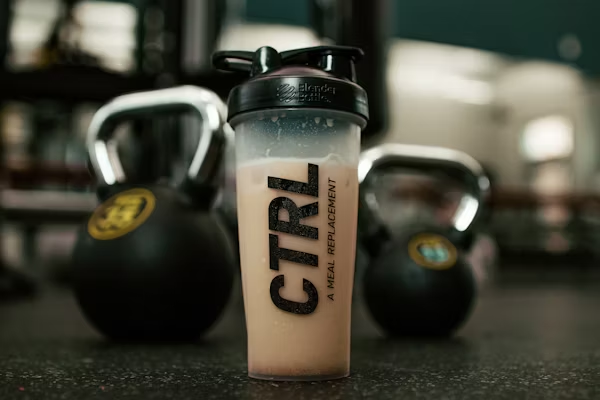Nutrition for Women: Eating Right at Every Age

Good nutrition is essential for everyone, but it’s especially important for women due to their unique nutritional needs at various stages of life. Whether you're in your 20s, 30s, 40s, or beyond, eating right can help you feel your best, maintain energy, support hormone health, and reduce the risk of chronic diseases. You can ensure optimal health and well-being by focusing on a balanced diet tailored to your specific age and lifestyle. Here’s a guide to nutrition for women at every age.
1. In Your 20s: Building a Strong Foundation
Your 20s are a critical time to establish healthy eating habits that will benefit you for years to come. During this decade, your body is still developing, and your nutritional needs are focused on supporting bone health, metabolism, and maintaining a healthy weight.
Key Nutrients to Focus On:
- Calcium and Vitamin D: These nutrients are essential for building strong bones. Women in their 20s should aim for about 1,000 mg of calcium daily, which can be found in dairy products, leafy greens, and fortified foods. Vitamin D, which aids in calcium absorption, can be obtained from sunlight, fortified milk, or supplements.
- Iron: Many women in their 20s experience iron deficiency due to menstruation. Include iron-rich foods like red meat, spinach, lentils, and fortified cereals in your diet to prevent fatigue and maintain energy levels.
- Protein: Protein is crucial for muscle development and repair, especially if you’re active. Aim for lean sources like chicken, fish, beans, and tofu.
Healthy Habits
Establishing portion control and learning how to balance your meals with protein, healthy fats, and complex carbohydrates is key during this decade. Make sure to include whole grains, fruits, and vegetables in your daily diet.
2. In Your 30s: Supporting Hormonal Health
During your 30s, you may begin to experience changes in your metabolism and hormone levels, especially if you’re planning to start a family or are already dealing with the demands of a busy career and home life. Nutritional needs during this period focus on energy balance, hormonal support, and stress management.
Key Nutrients to Focus On:
- Omega-3 Fatty Acids: These healthy fats support hormone balance and reduce inflammation in the body. Include fatty fish like salmon, chia seeds, flaxseeds, and walnuts in your diet to support both your physical and mental health.
- B Vitamins: B vitamins, particularly folate (B9), are crucial for women who are planning to become pregnant or are already pregnant. These vitamins support energy levels and help with red blood cell production. Leafy greens, beans, and fortified grains are good sources.
- Antioxidants: Antioxidants such as vitamin C, vitamin E, and beta-carotene help combat oxidative stress caused by aging, pollution, and daily life. Incorporate colorful fruits and vegetables like berries, sweet potatoes, and peppers into your meals.
Healthy Habits
Focus on meal planning and preparing balanced meals that include fiber-rich foods like whole grains and legumes to keep your digestive system healthy. Managing stress through proper nutrition is also crucial, as chronic stress can disrupt hormonal balance.
3. In Your 40s: Preparing for Menopause
In your 40s, your body begins to prepare for menopause, and you may notice changes in your metabolism, energy levels, and bone density. Nutrition during this time should focus on maintaining bone health, managing weight, and balancing hormones to ease the transition into menopause.
Key Nutrients to Focus On:
- Phytoestrogens: These plant-based compounds mimic the effects of estrogen in the body and can help ease menopausal symptoms. Foods like soy, flaxseeds, and lentils are excellent sources of phytoestrogens.
- Calcium and Vitamin D: As estrogen levels decline, bone density decreases, making calcium and vitamin D even more important. Continue to include dairy products, leafy greens, and fortified foods in your diet.
- Fiber: As metabolism slows, fiber becomes essential for maintaining a healthy weight and preventing heart disease. Add high-fiber foods like oats, barley, and legumes to your meals.
Healthy Habits
Portion control and regular physical activity become increasingly important in your 40s. Make a habit of incorporating strength training and weight-bearing exercises to maintain muscle mass and bone density.
4. In Your 50s and Beyond: Aging Gracefully
In your 50s and beyond, nutrition plays a key role in managing the symptoms of menopause and promoting overall well-being as your body ages. Bone health, heart health, and cognitive function are the main areas to focus on.
Key Nutrients to Focus On:
- Calcium and Vitamin D: Continue to prioritize these nutrients to prevent osteoporosis. You may need to take supplements if you’re not getting enough through food or sunlight exposure.
- Magnesium: Magnesium is essential for muscle function, nerve health, and regulating blood pressure. Include foods like nuts, seeds, and leafy greens in your diet.
- Protein: Protein is crucial for maintaining muscle mass, which naturally declines with age. Incorporate lean protein sources like fish, chicken, and plant-based proteins into your meals.
Healthy Habits
Stay hydrated and continue eating a balanced diet rich in fruits, vegetables, whole grains, and lean proteins. Pay attention to portion sizes and make physical activity a priority to maintain mobility and strength.
Conclusion
At every stage of life, women’s nutritional needs change, and it's important to adjust your diet to meet these needs. By focusing on key nutrients such as calcium, vitamin D, protein, and healthy fats, you can maintain your health, manage hormonal changes, and support overall well-being. Whether you're in your 20s or your 50s, eating a balanced, nutrient-dense diet can help you feel your best at every age.
Trending posts
Subscribe to our newsletter
Lorem ipsum dolor sit amet, consectetur adipiscing elit. Suspendisse varius enim in eros elementum tristique.









